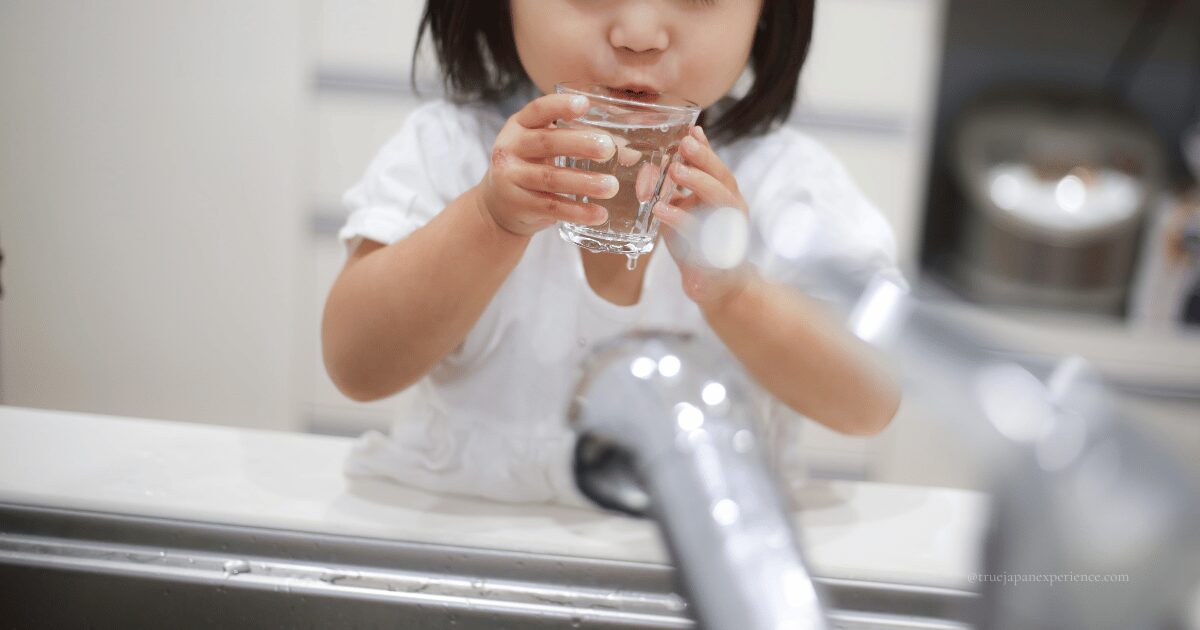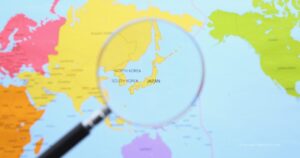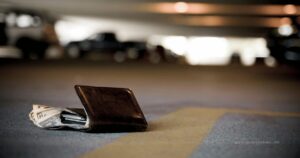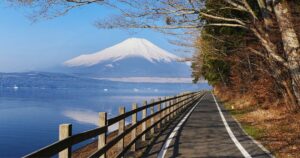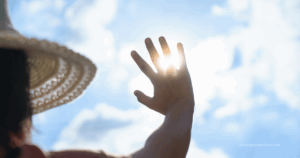Tap water in Japan is safe, clean, and ready to drink in most places.
Many travelers are surprised to learn that you can drink water straight from the tap without worry.
But is it really okay to drink hotel water? Why do Japanese people still buy bottled water?
This article explains everything you need to know about tap water in Japan — how it tastes, how safe it is, and whether it’s soft or hard water.
Quality and Safety of Japanese Tap Water
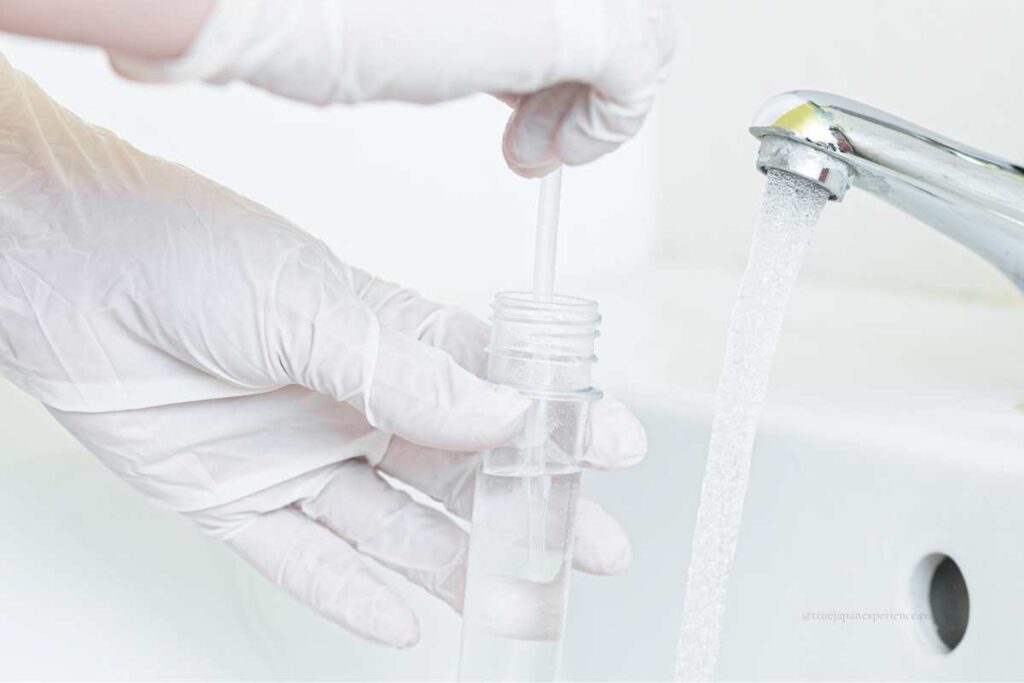
It is one of only a few countries in the world where you can drink water from the tap without worry. But why is it so safe?
Japan has a national law called the Water Supply Act, which started in 1957.
This law sets 51 strict rules for tap water. These rules are not only about bacteria and chemicals. They also include things like taste, smell, and the amount of minerals such as calcium and sodium.
The same rules apply all across Japan, from big cities to small villages. That means the quality of tap water in Japan is the same, no matter where you go.
To keep the water safe, each city or town checks the water every day. If there is a problem, they fix it right away.
The water is also cleaned with special systems that use modern technology. These systems help remove germs and bad smells.
In the past, some people did not like the strong chlorine smell in city water. But now, most places use better systems that make the water taste and smell much better.
Because of all this, you can feel safe when you drink tap water in Japan. It is tested often, cleaned with care, and controlled by clear national rules. That’s why both Japanese people and travelers can trust the water from the tap.
Why Do Some People Still Buy Water?
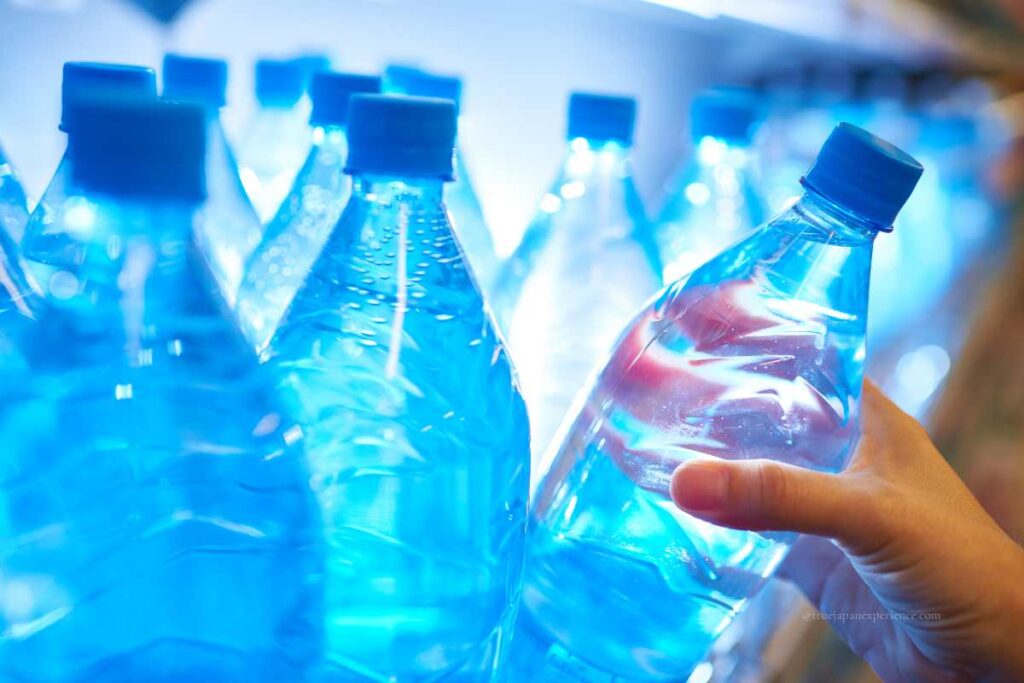
Even though tap water in Japan is clean, safe, and drinkable almost everywhere, many people still choose to buy bottled water or use home water servers.
In fact, Japan has a tap water coverage rate of about 98%, which means nearly everyone has access to safe water from the tap.
So why do people still buy water?
One reason is convenience. In summer, Japan gets very hot and humid. Many people carry bottled water when they go out.
Some homes and offices use water delivery services, especially during heatwaves or as part of emergency preparation for earthquakes or typhoons.
Another reason is habit. In the 1980s and 1990s, tap water in some big cities had a strong chlorine smell. At that time, water cleaning systems were not as advanced as they are today.
People didn’t like the taste or smell, so they began using filters or drinking bottled water. This habit stayed, especially among people now in their 40s and 50s.
Even now, some people feel safer drinking bottled water, especially in hotels or unfamiliar places. Others just like the taste or feel of bottled brands.
So while tap water in Japan is very high quality, people buy water for many personal reasons — not because the tap water is unsafe, but because it’s a part of daily life and comfort.
Is Hotel Tap Water Okay to Drink?
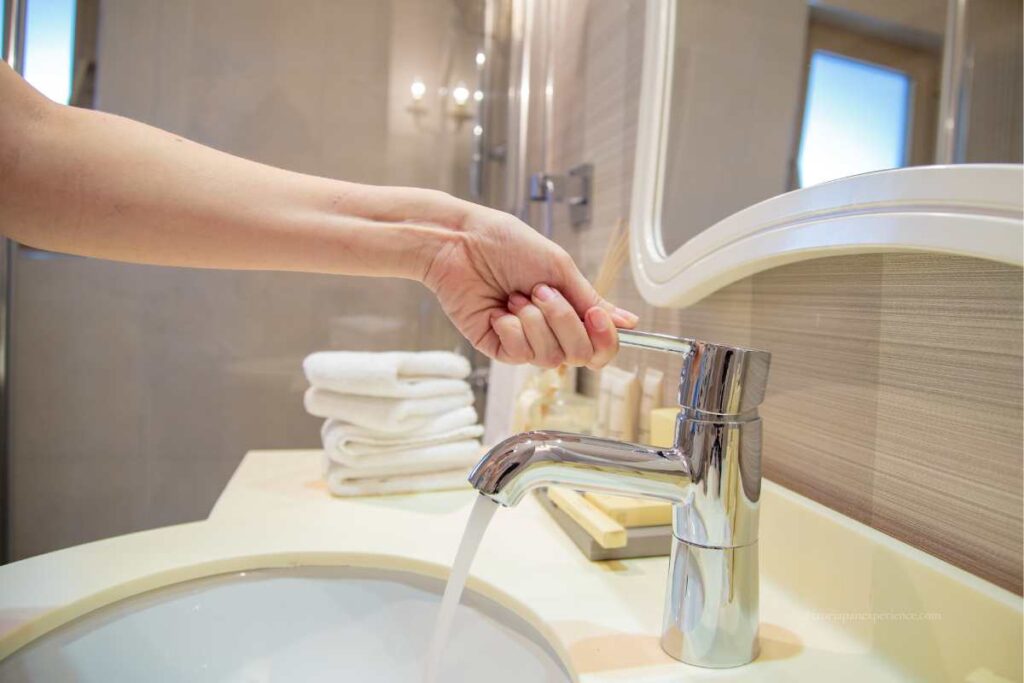
If you’re staying at a hotel in Japan, you might wonder: “Can I really drink the tap water here?”
The answer is almost always yes — but it helps to know a little more about how things work.
In Japan, tap water is controlled under strict national safety rules.
Most hotels use regular city water, which is the same safe water used in homes and schools.
In some cases, a hotel might use spring or well water, but only if it passes the same safety tests. These types of water are also safe to drink.
That’s why in most hotels, the tap water in your bathroom or sink is perfectly fine to use — even for brushing your teeth or making tea.
You may sometimes see a small sign that says “This water is safe to drink.”
This doesn’t mean the water is different or better. It’s simply there to give peace of mind, especially for guests from overseas who may be unsure.
On the other hand, if water is not safe to drink, the hotel is required to post a warning like “Do not drink” near the faucet.
Is Japanese Water Hard or Soft?
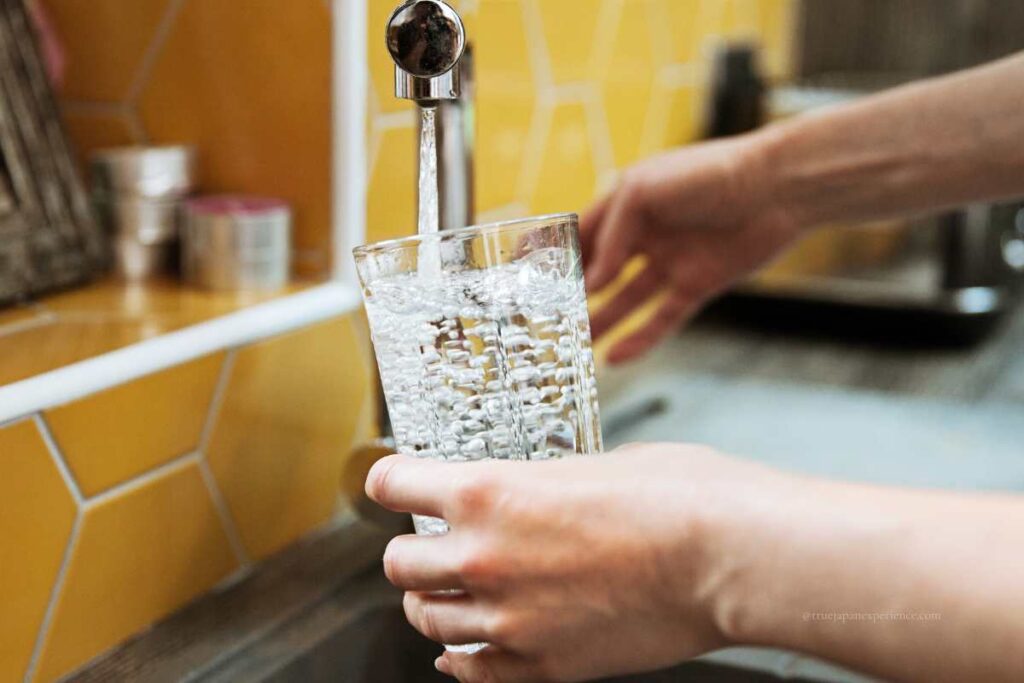
Japanese tap water is soft water. That means it has low levels of minerals like calcium and magnesium.
In Japan, water hardness is usually under 100 mg/L, which is why it tastes light and smooth.
This is different from many Western countries, where hard water is common. Hard water has more minerals and can feel “heavy” or “strong” in taste.
If you are used to hard water, Japanese water may feel a little plain or flat at first.
But don’t worry — soft water is gentle on the stomach, and many people find it easier to drink after a while.
Soft water is also great for making tea, rice, and soup. In fact, that’s one reason Japanese food often has a clear and delicate flavor. The water doesn’t get in the way — it brings out the taste of the ingredients.
So if you’re traveling in Japan, you can enjoy soft water that’s not only safe, but also perfect for the local cuisine.
Why Soft Water Works Well for Japanese Food
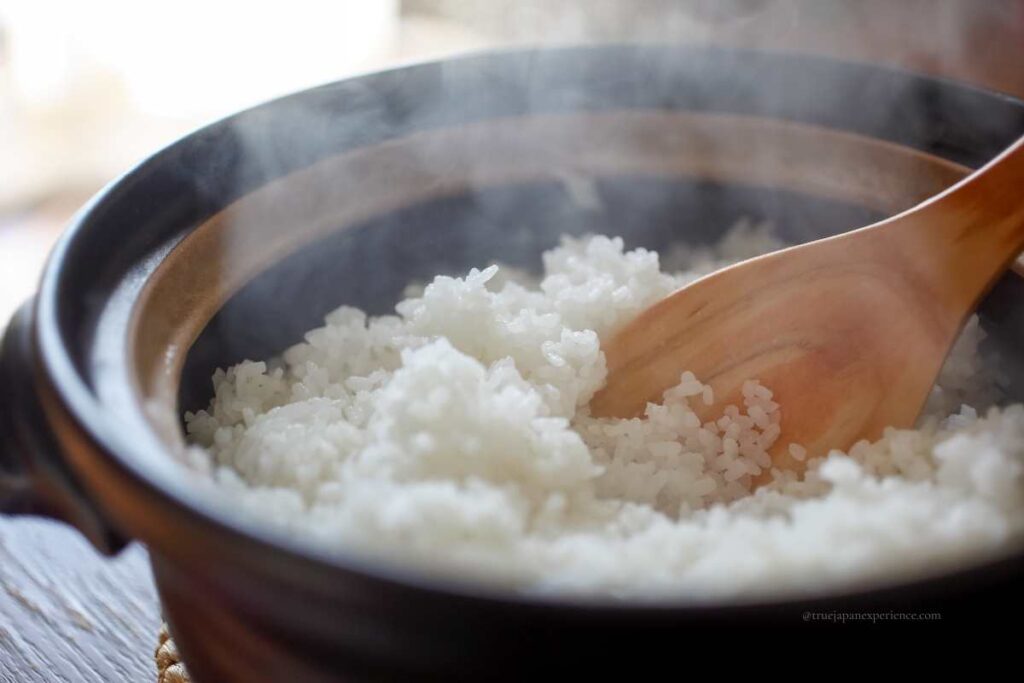
Most tap water in Japan is soft water. That means it has low minerals, and the taste is clean and mild.
This kind of water is very good for cooking Japanese food.
Here are some examples:
・Rice becomes soft and fluffy, and the sweet flavor comes out better.
・Japanese soup stock (made from kelp or dried fish) gives more flavor in soft water.
・Boiled vegetables turn out tender because the water soaks in well.
If you use hard water, rice may feel dry, and soup may taste weaker.
Soft water is also great for tea.
It keeps the flavor clear and smooth. That’s why Japanese tea ceremonies always use soft water too.
In short, Japan’s soft water is not the reason food tastes good — but it helps bring out the best in rice, soup, and tea.
Final Thought
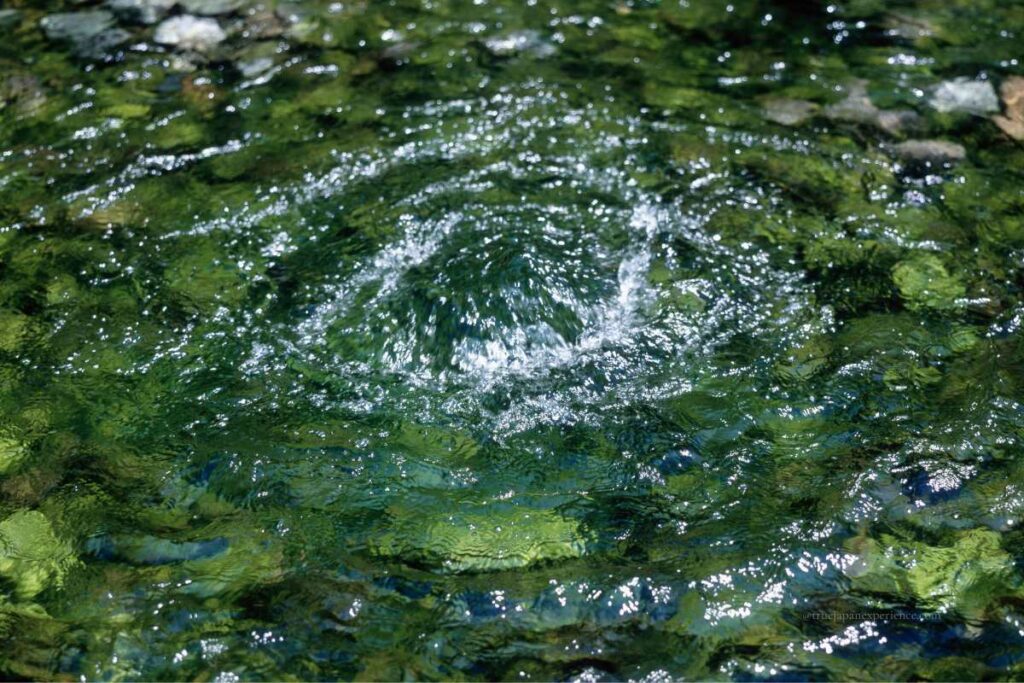
In Japan, tap water is clean and safe in most places — a part of everyday life.
But if you’re still unsure, that’s perfectly okay.
You can always find bottled water in convenience stores and vending machines. There are many types — mineral water, even water from famous springs.
Trying a few during your trip can be a fun way to explore local flavors.
Want to learn more about Japan’s amazing vending machines?
Check out:
Japanese Vending Machines: A Unique and Fun Cultural Experience
